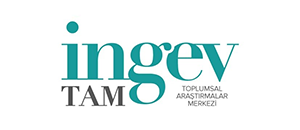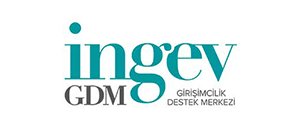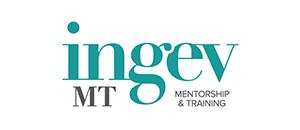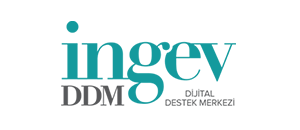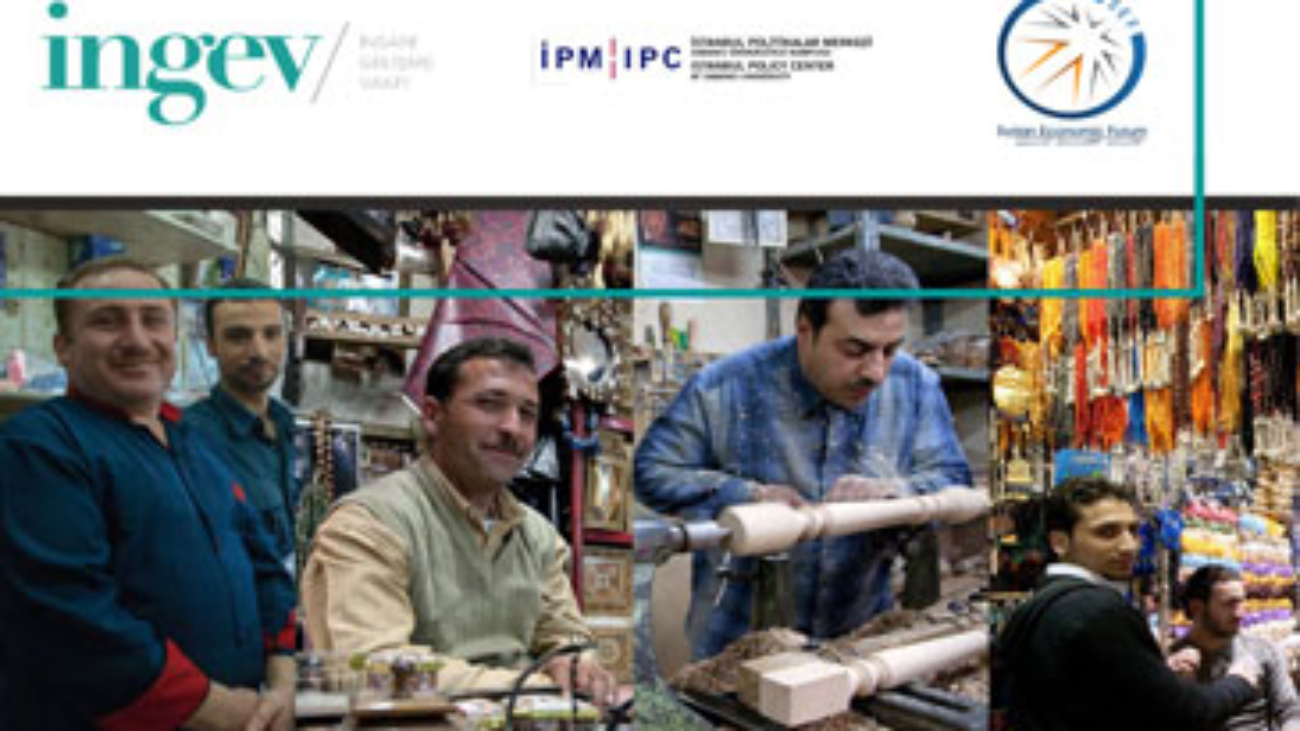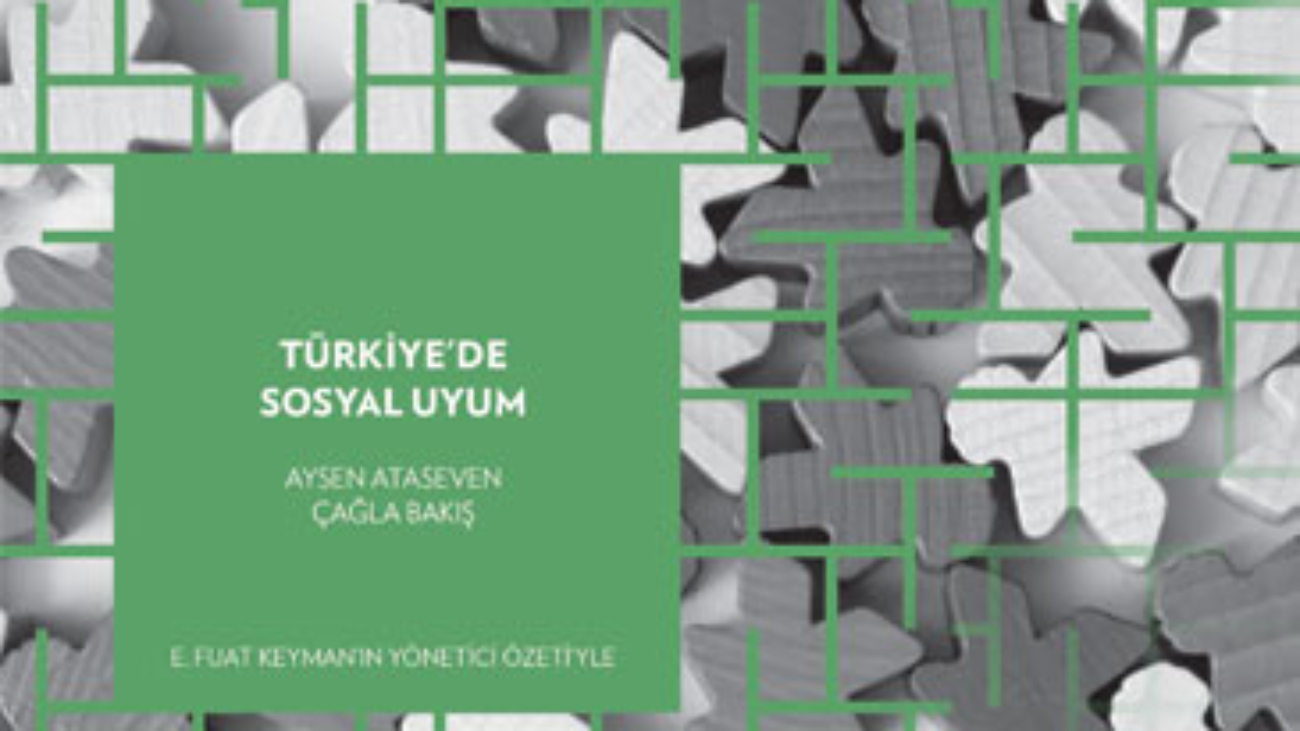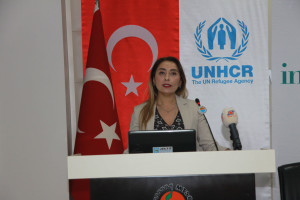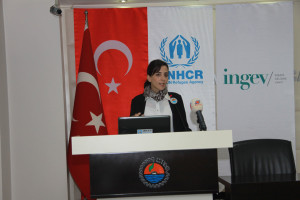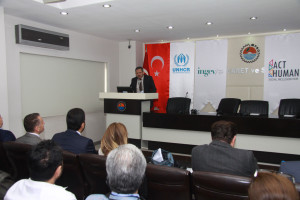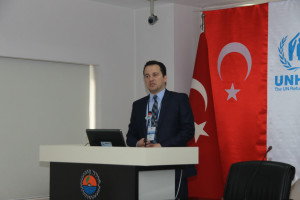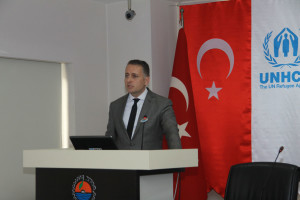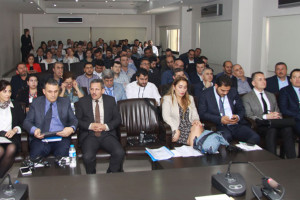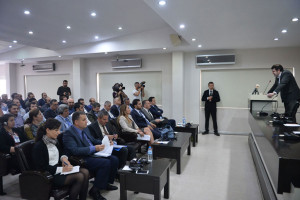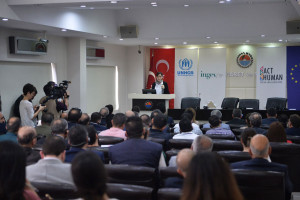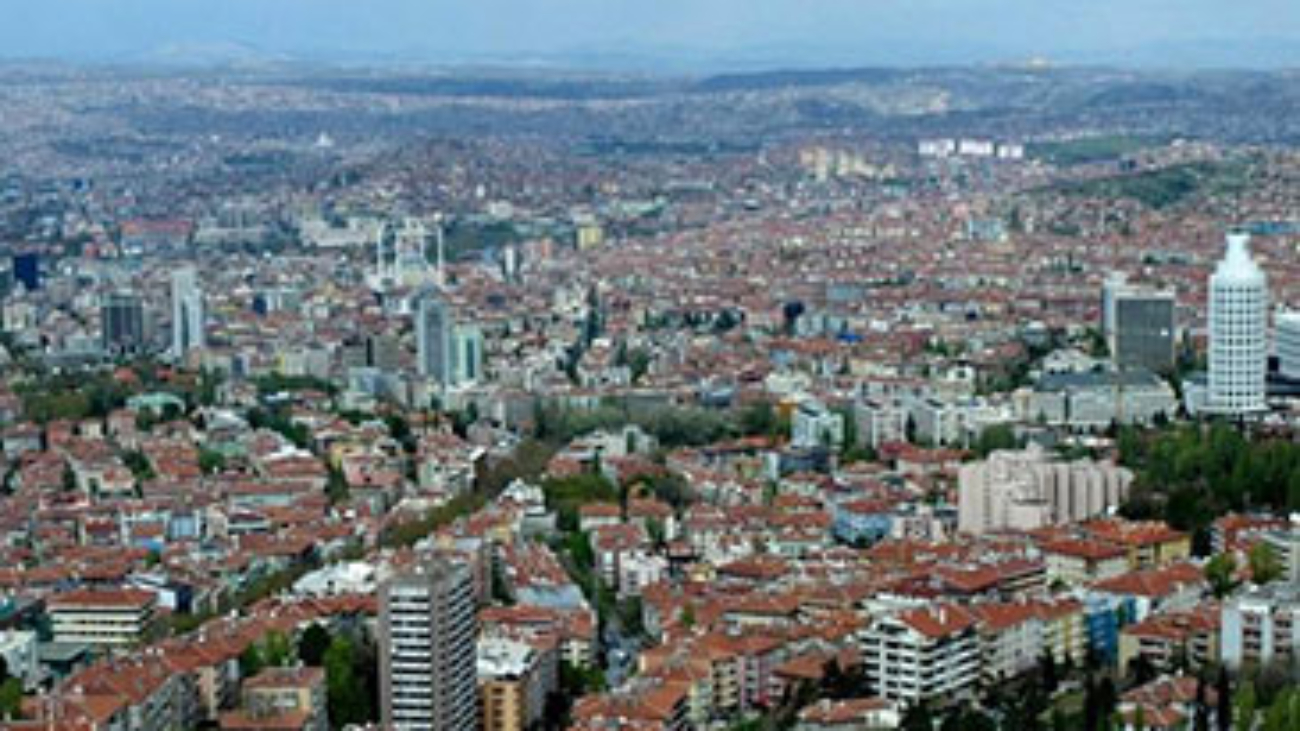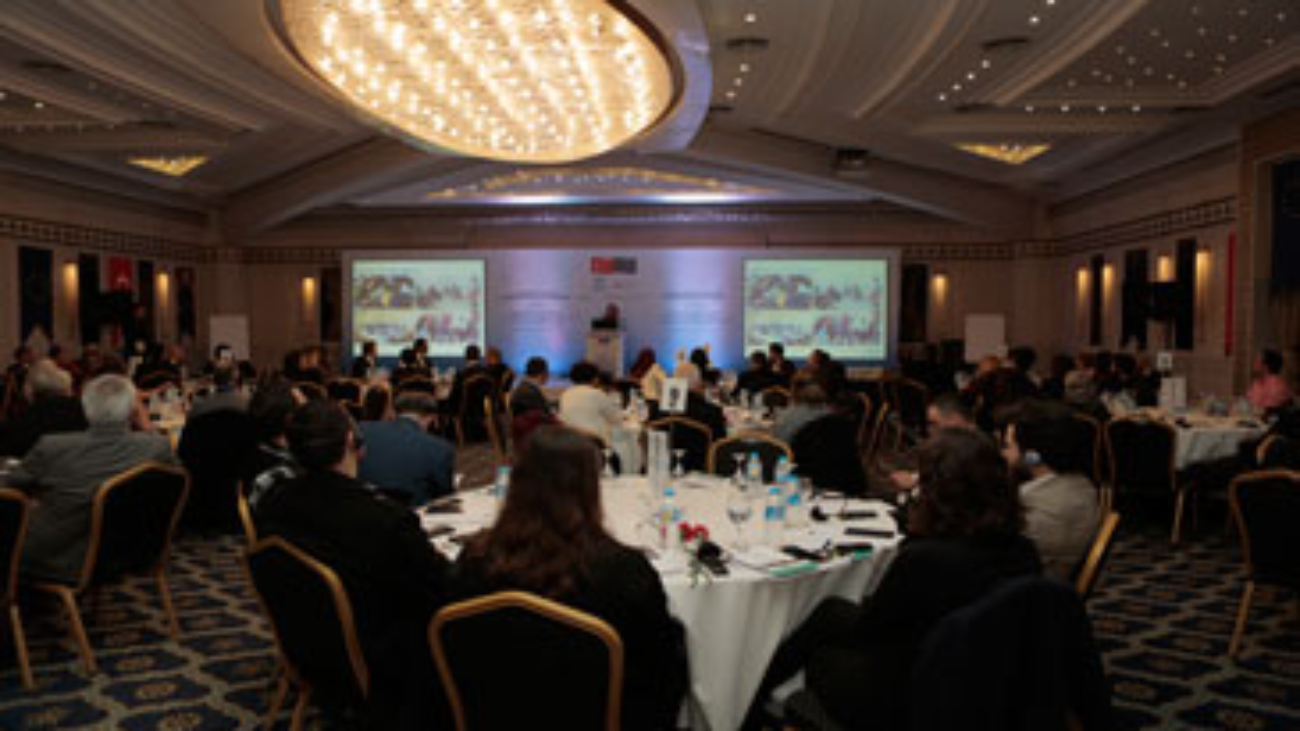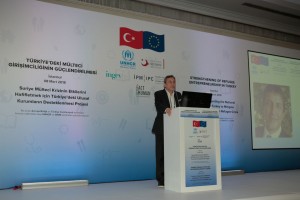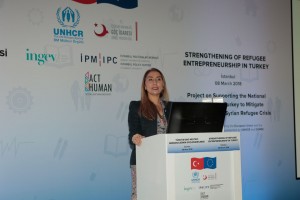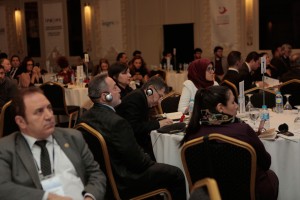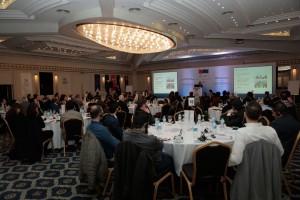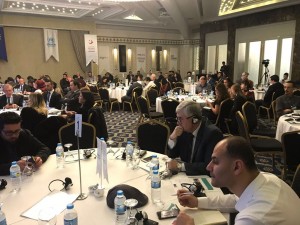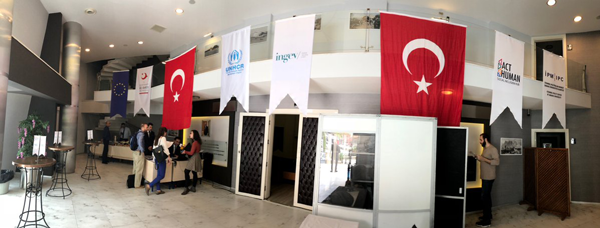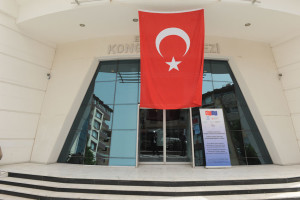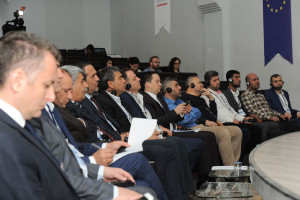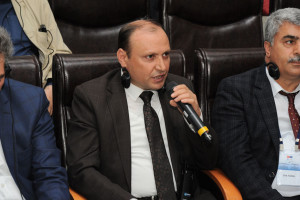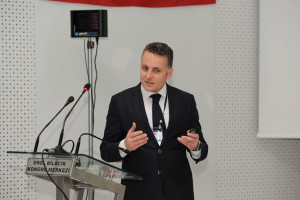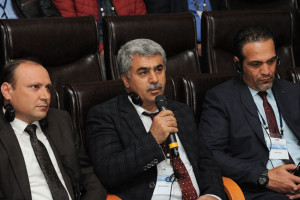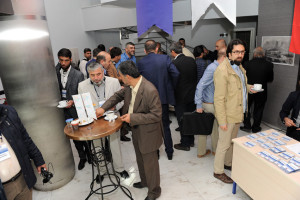While İNGEV provides services from sustainable development and human development perspectives in our country, we provide our services through these four units. These are İNGEV TAM (Social Research Center), İNGEV GDM (Entrepreneurship Support Center), İNGEV MT (Mentorship and Training), and İNGEV DDM (Digital Support Center). Click to have a detailed glance at our activities.
ActHuman Social Inclusion Hub First Social Recommendations and Policies Booklet is Out!
As a joint initiative by INGEV-IPM, “ActHuman Social Inclusion Hub”, we proudly share with you our first social recommendations and policies booklet.
Our joint initiative, initiated with the publication of our first title, “The Enhancement of Syrian Entrepreneurship to Contribute Employment and Integration”, has prepared “Potential Enhancement Areas for Companies Established by Syrians” booklet with the support of Syrian Economic Forum. This booklet starts off with a profound look at the Syrian Crisis and Syrian Entrepreneurship in Turkey. The second chapter, “Potential Enhancement Areas”, informs the reader about the 11 Enhancement Areas Regarding Legal And Financial Regulations.
What Are These Enhancement Areas? Centralization And Dissemination Of Information, Doing Business In Turkey, Legal Environment, Ease Of Travelling, Ease Of Work Permit And Quotas, Clarification/Improvement Of Financial Services, Encouragement Of Formalization And Entrepreneurship, Long Term Sustainability Guarantees, Similar Approach, Equal Opportunities, Business–Investment Orientation, Increasing The Roles Of Chambers & Associations, Labor Market Needs, Large Scale Agricultural And Livestock Projects
How did we prepare the booklet?
Following the establishment of ActHuman Social Inclusion Hub, a steering committee was formed with their objective stated as “The Enhancement of Syrian Entrepreneurship to Contribute Employment and Integration”. A general approach was conceived after the first of these committee meetings and a literature review was carried out subsequently. INGEV worked on the draft policy paper in cooperation with Syrian Economic Forum. The steering committee improved the draft policy paper with a second workshop. The policy paper was thus ready to be presented at the conference held in Salt Galata on September 27, 2017.
Syrian entrepreneurs and company owners actively participated in this first-of-its-kind conference and took part in the panels as speakers. Ministries, international institutions, national civil society organizations, university and private sector representatives also aided the policy paper with their feedback. The paper was presented by Mr. Rami Sharrack, the Director of Syrian Economic Forum, who has been part of the process since the beginning. The policy paper was finalized in line with the feedback received during the conference. It is now being circulated among members of the public and private sectors along with academic and civil society networks, which are symbolized by the four triangles in the ActHuman logo.
“Social Cohesion in Turkey” Report is Out!
“Social Cohesion in Turkey” report, written by researchers Aysen Ataseven and Çağla Bakış representing INGEV with findings acquired from 1514 face to face interviews is published with an executive summary drawn up by Fuat Keyman. The report takes on issues such as the scale and the current status of social cohesion in Turkey. Social Cohesion Index, generated within this study, will make it possible to follow these issues in the future as an important chart related to social life.
The research was conducted to measure social cohesion level of Turkish society in the latest period in which political polarisation has risen. To understand the situation more clearly, a “Social Cohesion Index” was reported within this framework. Social cohesion, within its cognitive framework, was examined under three main topics:
- Correlativity
- Social Relations
- Collective Interest Understanding
Phenomena subjected to social cohesion were determined and based on this, question sets were written up.

The model used in this study was modified from the social cohesion models of European Foundation for the Improvement of Living and Working Conditions (Eurofound) and Bertelsmann Stiftung.
From the preface written by Fuat Keyman;
“Lately, during Turkey’s transition process in the fields of economy, technology, urbanization as such, we are facing a Turkey where the polarisation gets bigger, the culture of living together in peace weakens, although people feel safe individually they can’t trust different individuals. Turkey looks like an “individuals’ land” which is weak in creating collective norms, in taking a part in civil society, and in trusting different individuals. In this perspective, it’s appropriate to say we live in the “Individuals’ Turkey” not in the “Norms’ Turkey”.
How can this general statement be grounded, which factors lay the groundwork for “Individuals’ Turkey”, is polarisation affects every level of social life or are there different effects? To answer these kinds of questions, we have to look at social cohesion status which is an important field of research and in which there is a rising interest. Social cohesion researches conducted by examining social correlativity, social relations, and, collective interest understanding; in general social life in a country, yield important findings related to “living together” and “social trust” relations or levels in that country. The countries with high social cohesion are the countries that are against polarisation, low in conflicts, and has high levels of living together and social trust. The research here is examining social cohesion in Turkey who is experiencing issues such as security risks and conflict areas lately.
General Social Cohesion Index in this study was measured based on sub-indexes Correlativity, Social Relations, and Collective Interest Understanding. According to this, social cohesion in Turkey is at medium level (55/100).
“Strengthening Refugee Entrepreneurship in Turkey” Mersin Workshop was Held
“Strengthening Refugee Entrepreneurship in Turkey” Mersin Workshop was organized on 12 April at Mersin Chamber of Commerce and Industry (MTSO) with the attendance of public institutions, refugee entrepreneurs, Turkish business people and representatives of non-governmental organizations. The opening speeches were delivered by INGEV Director Berk Çoker, UNHCR Livelihood Manager Damla Taşkın, and MTSO Assistant Secretary-General Ezgi Biçer Uçar at the workshop which was organized by “ActHuman Social Inclusion Initiative”, an INGEV initiative in cooperation with IPC (İstanbul Policy Center), with the cooperation of UNHCR, and found granted by European Union and the Republic of Turkey.
After the opening speeches, Small and Medium Industry Development Organization (KOSGEB) Mersin Manager Danyal Peker gave information about “Government Supports for Building Capacities of Small and Medium Scaled Enterprises”. Foreign Tade Specialist Ali Can Kahya from T.R. Ministry of Economics General Directorate of Incentive Implementation And Foreign Investment spoke about governmental incentives current in Mersin which is on 3rd Area in Turkey’s investment map under his presentation titled “Governmental Incentives for Building Local Entrepreneurship”. INGEV Board of Trustees Member Attorney Arkın Eyvazoğlu gave information which will be useful in guiding refugee entrepreneurs in the fields of trade and law in his presentation titled “Legal Obligations of Establishing Incorporations and After their Establishments”.
SEV Kindergarten and INGEV Got Together for Syrian Children
Within the framework of the project, kindergartners gathered and packaged school supplies such as stationery equipment, water bottles, notebooks, books and raised awareness by affecting others’ life.
INGEV, in coordination with İstanbul-Üsküdar District Directorate Of National Education, made contact with Yavuztürk Primary School which educates the most Syrian refugee students. On 17 May 2018, the packages were handed to 48 Syrian students at Yavuztürk Primary School by INGEV and SEV Schools authorities. While SEV Kindergarten realized a social responsibility project that raised awareness about solidarity among kindergartners, INGEV was proud to be a bridge for realizing such a project that supported children of refugee families suffering socially and economically.
We, as INGEV, wish Yavuztürk Primary School’s and all of the SEV Schools’ students success.
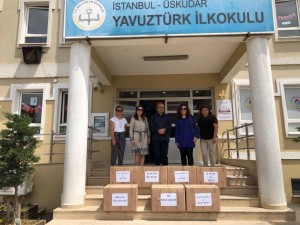
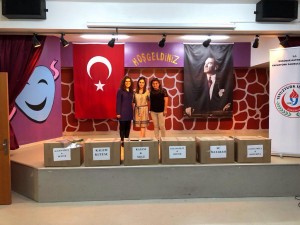
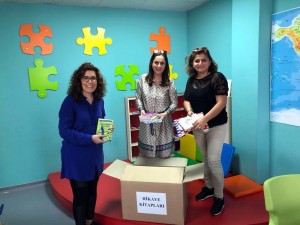
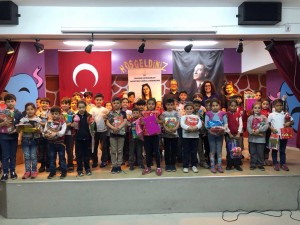
A Measurable View of Our Social Harmony: Social Cohesion Index
Social cohesion, examined as a concept of societies’ living together in cohesion level, shows where we stand and where we can develop as a society.
Social Cohesion Index and sub-indexes of main factors that form this Index is measured under the research framework from a data set representing Turkey. There have been various researches reflecting this kind of data. However, social cohesion has usually been dealt by interpreting the questionnaire answers. This new study, on the other hand, brings the cohesion together under three main elements: the level of social correlativity, healthy and stable social relations, and a developed understanding of collective interest. Main elements are based upon an index structure consisting of nine sub-factors. These sub-factors are belonging, trust in organizations, justice perception, deep social networks, trust in people, acknowledgment of pluralism, solidarity and philanthropy, abiding to social norms, and civil engagement.
From this perspective, a measurable and repeatable format upon which policies can be carried out is designed. The study whose preface was written by Prof. Dr. Fuat Keyman was carried out by INGEV for İstanbul Policy Center (IPC). The report will be out soon.
Human Development Index-Districts Report is out: Transition to Human from Consumer
Human Development Index-Districts (HDI-Districts) 2017 Report is out.
Human Development Index-Districts (HDI-Districts) Report, issued for supporting human development in Districts by INGEV and its results are announced.
This year’s main theme is “Transition to Human from Consumer”.
Human Development Indexes have been released on a country basis since 1990 by United Nations Development Programme (UNDP). Human Development Index, measured by dealing with income per capita, life expectancy at birth and rates of literacy and schooling is aiming to measure not economic growth alone but also health and education data and to compare countries.
Local governments and micro implementations grow in importance.
Human Development Index aims at directing human development on a local level. Today, localization is growing increasingly and local policy instruments affecting human development is becoming diversified. Effective use of these instruments by local governments on a micro scale and other sharers, especially centralized governments, supporting these instruments play a great role in increasing life quality. INGEV pays attention to the administrable variables that may affect daily life.
Human Development Report and Index cover 186 Districts.
Human Development Index-Districts, also known as HDI-D, report covers 186 districts with the highest population in metropolitan cities. The scope of districts has been enlarged compared to the 2016 report.
The data set consists of 65 factors measuring human development on a district level and of “secret citizen study”.
HDI, consisting of components of social, economic and environmental factors on a district level, shows objective charts relating to demographic structure, education, health, social life, social inclusion and participation, governance, economic capacity, income and consumption status, environment, infrastructure, and transport. The data was acknowledged by examining local governance activity report in depth and consists of centralized statistics. Additionally, “secret citizen” study was enlarged in 2017 report. And a total number of 19 citizens applied to the municipals and answering levels were included in the index.
The results are grouped into four main categories: 30 districts are in Very High Human Development category.
In HDI-D, districts are grouped into four main categories; Very High Human Development, High Human Development, Medium Human Development and Low Human Development. 30 districts are in the Very High Human Development in 2017 report. 18 districts were in this category in 2016 report. The districts that are in the Very High Human Development (Green) category are as follows:

As well as Total Human Development Index, the study includes 8 sub-indexes.
Along with the Human Development Index, making up the total results, 8 sub-indexes which are of great importance in guiding local governance activities were published. These are Governance and Transparency, Social Inclusion, Economic Status, Education, Health, Social Life, and Environmental Performance.
The top five districts in these indexes are as follows:







A rise in the number of the districts that are covered in this year, exclusion of some of the districts that were included in the index last year, enrichment of the number of variables, and the performance of the districts led to some changes in the district rankings compared to last year.
Districts that moved one category up and one category down are as follows:

The study is conducted by the same project team for the last two years.
2017 report was conducted by the same project team as it was last year. The project team, run by INGEV Chairman Vural Çakır’s support was coordinated and written by İstanbul University Prof. Dr. Murat Şeker. The project team included Çağla Bakış, Barış Dizeci and INGEV experts for the statistic analyses.
The report will be out as an e-book bearing the title “Transition to Human from Consumer”
HDI-D report will be brought into use as an e-book. The report’s title this year is Transition to Human from Consumer. The theme is about diminishing absolute poverty which is UN’s number one Sustainable Development Goal.
About INGEV
INGEV Foundation is established in efforts to contribute human development in Turkey. INGEV’s objectives, in cooperation with relevant state institutions, local authorities, multi-national cooperation, universities and private sector; are to become a reference guide and primary source with regards to human development in our country; to present guiding opinions and suggestions to political decision-makers through researches and reports; and to support human development along with innovative implementation projects.
INGEV, in all its endeavors, functions in a transparent, accountable and participatory sense; with a nonpartisan attitude and in order to fulfill the needs of human development in Turkey, INGEV acts with a social responsibility that aims to improve mutual agreement with related parties.
“Strengthening Refugee Entrepreneurship in Turkey” Istanbul Workshop Held
Representatives from both public and private sectors, NGOs and academic world have showed great interest to “Strengthening Refugee Entrepreneurship in Turkey” workshop held on March 8th at Dedeman Hotel Gayrettepe.
In this workshop, organized by ActHuman Social Inclusion Initiative together with UNHCR and with the financial support of Turkish Republic and European Union, İNGEV President Vural Çakır, UNHCR Livelihoods Manager Damla Taşkın and Dr. Hakan Orduhan, Board Member of Istanbul Chamber of Commerce gave the opening speeches.
Following this, a video-story titled “Building Lives, Building Business”, which tells the stories of 8 refugee entrepreneurs in Istanbul, Hatay, Mersin and Adana was shown.
Social policy recommendation package titled “Enhancement of Refugee Entrepreneurship to Contribute Economy and Employment in Turkey” launched on september 27th, which is to make recommendations regarding legal and financial regulations, was presented by Syrian Economic Forum.
The representatives from major industrial associations also gave information to refugee entrepreneurs about their association’s structure, membership conditions and advantages.
In this session, The president of Istanbul Chamber of Merchants and Craftsmen (İSTESOB) Faik Yılmaz, the president of Istanbul Chamber of Real Estate Agents Nizameddin Aşa, Vice President of Turkish Clothing Manufacturers’ Association Ramazan Kaya, Vice President of DEİK Syrian Business Council Osman Nuri Önügören, Board Member of UTIKAD Cihan Yusufi, General Secretary of Food Retailers Association and Chain Stores Association Füsun Tavus Mumcu, General Secretary of Istanbul Chamber of Jewelry Dealers Ali Ramazan Şanto, Associate General Secretary of TUSIAD Melda Çele, Ready-Made Garment R&D Chief of Istanbul Ready-Made Garment Exporters’ Association Ahmet Şişman, ITO Representative of KOSGEB Kerim Bilir, Industrial Structuring Representative of TÜRKONFED Özgün Pelit, Corporate Communications Respresentative of TAYSAD Sercan Duygan made presentations about their associations.
After this session, an information sharing and Q&A session was held. Limitless Corporate Consultancy Services General Manager Yunus Beyhan made a presentation regarding “Turkish Commercial Legal Framework and Regulations for Business Registration” besides that, he has also shared datas about the “Refugee Entrepreneurship Support Line” which is active since January 2018.
From Ministry of Economy, General Directorate of Incentive Implementation and Foreign Investment, Ali Can Kahya also made a presentation titled “State Incentives to Enhance Entrepreneurship in Turkey”
During the workshop, March 8th International Women’s Day was remembered and flowers were given to women participants.
“Strengthening Refugee Entrepreneurship in Turkey” Hatay Workshop was Held
“Strengthening Refugee Entrepreneurship in Turkey” Hatay Workshop was organized on 22 March at Erol Bilecik Kongre Merkezi with the attendance of public institutions, refugee entrepreneurs, Turkish business people, and representatives of non-governmental organizations. Opening speeches were delivered by INGEV Director Berk Çoker, UNHCR Hatay Field Office Specialist Rıfat Kerim Menemencioğlu and UNHCR Competency Programmes Responsible Asuman Baba at the workshop, organized by “ActHuman Social Inclusion Initiative”, an INGEV initiative in cooperation with IPC (İstanbul Policy Center), with the cooperation of UNHCR, and found granted by European Union and the Republic of Turkey.
Foreign Tade Specialist Ali Can Kahya from T.R. Ministry of Economics General Directorate of Incentive Implementation And Foreign Investment delivered his presentation titled “Governmental Incentives for Building Local Entrepreneurship”. Afterwards, INGEV Board of Trustees Member Attorney Arkın Eyvazoğlu gave insights to refugee entrepreneurs in his presentation titled “Legal Obligations of Establishing Incorporations and After their Establishments”. After the important presentations, a video story named “Build Life, Build Trade”, prepared by INGEV telling the trade lives of 8 refugee entrepreneurs living in İstanbul, Hatay, Mersin and Adana, was watched and got credit by the attendees.
At the “Information Sharing about Social Cohesion and Introduction Session”, refugee entrepreneurs, Turkish business people, public institutions, and NGO representatives sought answers to questions such as what are the opportunities of business promotion and the needs of refugee corporations in Mersin, what kind of support is needed in Mersin, how refugee corporations can be integrated better into the business life in Mersin, and what kind of legal and financial information do refugee corporations need. At this session, which was very interactive, Hatay Turkish Employment Agency İŞKUR Province Manager Ziya Yüksel, Burhan Kahraman from Provincial Directorate of Commerce, DOĞAKA (Eastern Mediterranean Development Agency) Sector-Specific Support and Programming Unit Chairman Serdar Çınar, Hatay Chamber Of Merchants And Craftsmen Chairman Abdülgani Kit, DASİFED (Doğu Akdeniz Sanayici ve İşadamları Derneği) General Secretariate Onur Dönmezer, Antakya Chamber of Commerce and Industry Foreign Trade Department Director İbrahim Eminoğlu, Reyhanlı Syria Chamber of Commerce and Industry members over 30 in number, and business people of Hatay from various sectors.
“Syrian Participation in Turkey’s Higher Education Workshop” was Held
INGEV and Bahçeşehir University Center of Migration and Urban Studies cooperated in organizing “Syrian Participation in Turkey’s Higher Education Workshop”.
To develop suggestions about the Call Center’s scope of service, which will assist guidance support in order to encourage Syrian youngsters living in Turkey to participate in higher education “Syrian Participation in Turkey’s Higher Education Workshop” was organized at Bahçeşehir University. Ministry of National Education, Directorate General Of Migration Management, TÖMER, TÜRKMER, Ankara University, Bahçeşehir University, İstanbul Aydın University, various non-governmental organizations working on education of Syrian students across Turkey, and Syrian students were present at the Workshop in which current policies, implementations, and support mechanisms for Syrian participation in higher education and issues and needs relating to Syrian youngsters’ participation in higher education were brought up. Additionally, suggestions regarding the Call Center’s scope of service, which will be founded under the “Education is A Must Project” were discussed.
At the Workshop, where 30 people were present, general issues Syrian youngsters face in accessing higher education were defined as;
-not being able to get information about the universities and study majors that can be applied to, not knowing the sources of information about the process of applying to universities, higher education exam – YÖS, registration and enrollment to the university, undergraduate transfer, enrolling as a special student, procedures regarding the transfer from associate degree to bachelor’s degree, getting equivalence of high school diploma or certificate, scholarships and grants, process of application to these scholarship programmes, criteria for selecting the scholarship candidates, current Turkish language courses, and process of application to TOEFL.
On the other hand, it was suggested that the Call Center, which will perform as a support for Syrians to participate in higher education, should encourage guidance to Syrian students about university application procedures, issues regarding equivalence, scholarship and dormitory facilities, language courses, and TOEFL application process.


